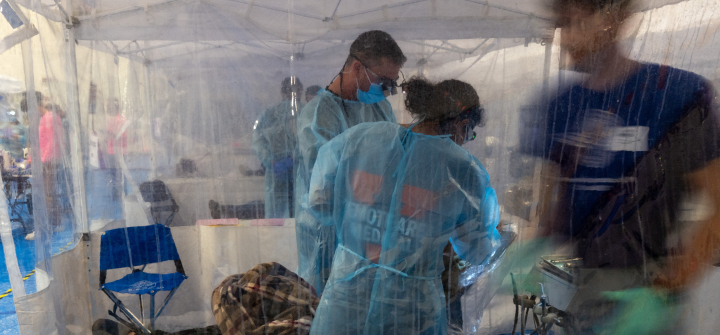The Health Poor: A New Class To Which Almost All Of Us Belong
If you are among the 59.4 million millionaires that make up 1.1% of the global population, you can stop reading now. Conversely, if you are considered to be extremely poor you probably already know about the following.
But: If you are one of the seven billion people not considered rich or poor, spoiler alert, you are at risk of health poverty.
More prevalent than poverty itself, health poverty is the lack of access to the health services and interventions an individual needs to benefit their state of health. This includes a lack of access to diagnostic tests, appropriate treatment, specialists, and care that follows clinical practice guidelines. Health poverty is exacerbated for people facing catastrophic illness or a rare disease diagnosis.
We either subscribe to the notion that prevention and primary health care will protect us from health poverty, or that if health systems were more efficient, we would all experience the timely and correct access we need.
Neither is true.
Here's why:
- WHO advises governments that spending at least 6% of GDP on health can provide financial protection against catastrophic illness, yet 39% of countries do not meet this threshold.
- More than 35% of health spending comes out-of-pocket, according to a 2019 WHO news release, which can result in up to 100 million people being pushed into extreme poverty each year.
- An estimated 20%–40% of health system spending globally is wasted through inefficiency. A WHO report published in 2010 identified 10 leading causes of inefficiency, including inappropriate hospital admissions, medical errors, and overuse of equipment and procedures.
- Even if we have access to the best preventive care, not all conditions can be prevented. Some 80% of rare diseases have a genetic cause, and there are an estimated 7,000 known rare diseases that affect more than 300 million people worldwide.
- In addition, the root causes of health poverty also include health insurance exclusions, health systems exclusions, delays, and geographic location. You may live in a health desert where health services are not available and connectivity is sparse. This limits access to virtual health care. We must also contend with the profound contradiction between making health a human right and defining health system services inclusions based on cost-effectiveness. And the deeply rooted exclusion of the contribution to health when valuing health care companies is the most significant cause that needs attention if we want to reduce or eradicate health poverty.
Of course, solutions to the above will generate more access but not all the access we need. A gap will remain.
So, we must stop being shy about tackling this difficult but essential conversation. We need to be brave and demand what is necessary to society’s well being. We must stop lying to ourselves about the fact that health poverty means settling for less. Specifically, we all should be doing our part:
- Health systems must clearly state the resources needed to prevent and treat with the most appropriate treatments, and people should hold governments responsible for accomplishing this.
- Health insurance companies, as well as public health systems, must cover preventive services and treatments and reasonably value health care providers.
- Patients must demand the access they need as a right not as a gift and hold their governments accountable. Health care providers must align with patients in doing this.
- Stock markets should include health care companies’ impact on health outcomes as a metric for determining a company’s value.
By failing to tackle health poverty and the unmet needs for health care access, we will never achieve the vision of a world where all populations are healthier.
Ana Rita Gonzalez, ScD, CPA, is the president and CEO of Policy Wisdom LLC. She currently lives in Puerto Rico.
Join the 50,000+ subscribers in 170+ countries who rely on Global Health NOW summaries and exclusive articles for the latest public health news. Sign up for our free weekday newsletter, and please share the link with friends and colleagues.
A two-day, mobile medical and dental clinic serve the rural poor in Grundy, Virginia, on October 7. Spencer Platt/Getty Images





